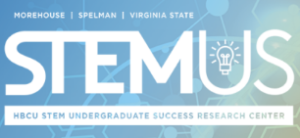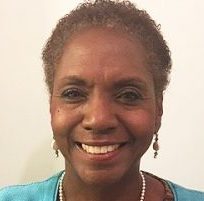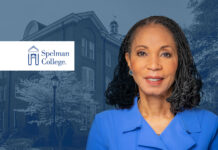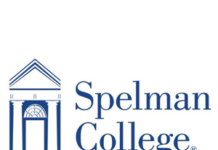 Morehouse College, Spelman College, and Virginia State University have announced a partnership to study best practices that impact STEM persistence and retention at historically Black colleges and universities. This collaborative work is being performed by the HBCU STEM Undergraduate Success Research Center, an initiative designed to tell the story behind the disproportionate number of HBCU students who go on to receive terminal degrees in STEM fields.
Morehouse College, Spelman College, and Virginia State University have announced a partnership to study best practices that impact STEM persistence and retention at historically Black colleges and universities. This collaborative work is being performed by the HBCU STEM Undergraduate Success Research Center, an initiative designed to tell the story behind the disproportionate number of HBCU students who go on to receive terminal degrees in STEM fields.
The center, known as “STEM-US,” is housed at Morehouse College. The three HBCUs are sharing a $9 million award from the National Science Foundation. The five-year grant will assist in the ultimate goal of implementing effective interventions that will increase retention across all STEM disciplines and improve graduation rates to above the national average. In doing so, STEM-US will study impactful STEM initiatives at as many as 50 HBCUs, using data-driven and theoretically framed models that consider the students’ prior background and current learning context.
 The ultimate goal of the STEM-US Center is to understand not only what academic interventions are effective in helping HBCU students succeed but also why they work. While the Center is administratively housed at Morehouse, the theoretical framing for the investigation of interventions and data interpretation and analysis is modeled on previous work done at Virginia State University, led by Cheryll Talley who will direct the Analytic Hub part of the project at Virginia State.
The ultimate goal of the STEM-US Center is to understand not only what academic interventions are effective in helping HBCU students succeed but also why they work. While the Center is administratively housed at Morehouse, the theoretical framing for the investigation of interventions and data interpretation and analysis is modeled on previous work done at Virginia State University, led by Cheryll Talley who will direct the Analytic Hub part of the project at Virginia State.
Dr. Talley will lead a team of postdocs and graduate students from various HBCU’s on methods to identify, replicate and scale best practices for STEM persistence and retention. The primary goal is to inform HBCU faculty and administrators on data-driven and theoretically framed models that consider the student’s prior background and current learning context. The next step will be to disseminate the most effective interventions that will increase retention across all STEM disciplines and improve graduation rates to above the national average.
“We are looking to open the door to the STEM field for any STEM-interested minority student across the country. We want to make sure they have opportunity to be greater and have an equitable pursuit of a career in the STEM world.”
Dr. Talley is an associate professor of psychology at Virginia State University. She is a graduate of James Madison University in Harrisonburg, Virginia, and holds a master’s degree and a Ph.D. in psychology from the University of Virginia.











